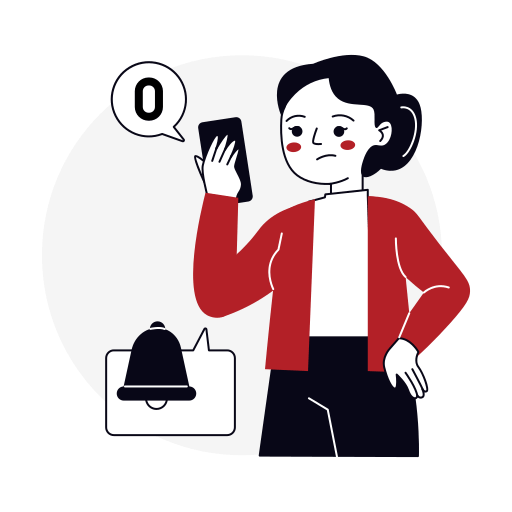Cart (0)
There is nothing in your bag.

Let's add some items.
There is nothing in your bag.

Let's add some items.

An allergic reaction occurs when the immune system mistakenly identifies a harmless substance, as harmful and initiates an attack against it. Symptoms of an allergic reaction vary from baby to baby, and can range from mild to severe.
The reason we place so much importance on allergies in this Course is not to scare you, but to empower you with the right information, so you can be well-informed in case an allergic reaction occurs. Always speak to your doctor for any advice.
Let’s delve more into the types and severity of allergies as well as the signs and symptoms to watch out for in your children.
When babies have a food allergy, their body’s IgE (immunoglobulin E) antibodies will identify that specific food as an “invader” and generate symptoms in different areas of the body, such as throat, skin, eyes, nose, stomach, etc.
There are two main types of food allergies.

Whether it’s IgE-mediated allergy or FPIES allergy, it’s best to speak to your doctor and if needed an allergist (allergy specialist) who can help you come up with a plan to manage your baby’s allergies.
Usually, these symptoms will vary from baby to baby. Even the range of reactions can vary from mild to severe.
An allergic reaction is considered severe or serious when:
1) the number of symptoms present (allergic reaction is severe if your baby displays more than two symptoms)
2) the severity of each symptom they have (allergic reaction is severe if each of these symptoms are severe, as opposed to mild)
As mentioned earlier, gradual introduction of allergenic foods through repeated, consistent exposure is very important to reduce your child’s risk of developing allergies later on. Once you observe that your baby is accepting and handling that food well, you can slowly increase the quantities and frequency.
Allergic reactions can be scary, but noticing symptoms early can help your child get proper treatment. An allergic reaction can occur if a baby touches, ingests, or even breathes/smells a particular allergenic food.


Here are some immediate physical signs and symptoms that you can easily observe and hear in a child having an allergic reaction:
Why do these symptoms occur? When the body encounters an allergen, it goes into defense mode and releases substances known as "histamines," which trigger inflammation within the body. Even a miniscule exposure to the allergenic food can produce an allergic reaction.
Let’s learn more about how allergic reactions vary according to their severity.
|
Symptoms of MILD or MODERATE allergy reaction |
Symptoms of SEVERE allergy reaction |
|
|
|
If your baby shows two or more SEVERE symptoms, seek medical help immediately. A severe allergic reaction can also trigger “anaphylaxis,” which requires immediate medical attention.

Babies around 6 months will not be able to communicate or convey if they’re experiencing a tingly nose or throat. So how do we know if they’re in distress?
Watch for other behaviors of discomfort in your baby:
If you observe any of these above symptoms, it’s best to stop feeding that food and speak to your doctor immediately.
|
TIP: Remember, most cases of food allergies tend to be mild. They may be severe if your baby is at high risk or has an existing allergy or health conditions like eczema or asthma. |
Reactions May Vary Due to Skin Color
Do remember that it’s possible your baby can get a red rash in an isolated incident due to some other reason. Not all red rashes mean your baby is having an allergic reaction. Some babies may have sensitive skin.
On darker skinned babies, the red rashes or flushed skin symptoms may not be physically evident. So, it’s important to view the symptom in relation to all the other symptoms outlined above and not in isolation.


1) How do I know if my baby is a high-risk baby?
Certain babies may be at a higher risk of developing allergies. This includes babies who have an immediate family member (parent or sibling) with a food allergy and those who have asthma, hay fever, or severe eczema (non-food allergy).
2) Is it food intolerance or allergy?
There is a way to differentiate between a reaction arising from food intolerance (your baby’s body cannot digest that food) and one arising from an allergy.
Symptoms arising from food intolerance will:
Symptoms arising from an allergic reaction will:
3) Is it eczema or allergy?
It’s natural for parents to confuse eczema with an allergic reaction. Eczema causes your baby’s skin to be very sensitive. If your baby has eczema, the consumption of certain foods may cause that eczema to flare up even more, and this can be scary for parents.
However, it is not the same as an allergic reaction. An allergic reaction will cause hives or swelling in addition to redness of the skin.
If your baby has eczema, it can be managed without restricting or eliminating any food from their diet. Your doctor will prescribe creams or ointments for the eczema.
4) Is it acidic food or an allergy?
Sometimes, redness around the lips/mouth can occur when your baby consumes acidic or citric foods like lemon, oranges, tomatoes, or strawberries. If babies have sensitive skin, eating these foods can cause skin irritation near the mouth.
If your baby simply has redness around the lips but they are not in any discomfort or not exhibiting other symptoms, they most likely are not having an allergic reaction. Redness around the lips can also occur due to excessive drooling. Your doctor can prescribe something to apply that will give your baby relief.
5) Should you keep an epipen?
Many parents with children who have allergies keep an “Epipen” or epinephrine at hand, which can be used to control an allergic reaction. Please consult your doctor and follow the treatment protocol they prescribe for your little one.
Note: Epipens cannot be used to control or manage FPIES symptoms.
6) Should you eliminate or restrict any food?
It’s very natural for parents to get overwhelmed or anxious when their baby has an allergic reaction to a certain food. Parents may instinctively stop or eliminate all other “potentially allergenic foods” out of fear. For example, if your baby has a reaction to peanuts, you may remove eggs, soya, wheat, dairy, and fish from their diet completely.
However, we do not recommend this as this can lead to nutritional deficiencies. Babies need a balanced diet which includes a variety of foods, flavors, and textures. It’s best to speak to your doctor for a proper plan of action, before eliminating any food on your own.
A delay in the introduction of allergenic foods (without proper cause) can also increase your baby’s chances of allergy development.
Reading about allergens and allergic reactions can be scary. The best thing you can do as a parent is to supervise your baby’s mealtimes. Being present and mindful of what your baby’s eating and if that’s causing any discomfort is a good practice.
Allergies tend to occur in babies and children, and the majority of these cases are manageable with a proper plan of action with help from a doctor/allergist.









Check your WhatsApp for Slurrp It Up’s first message to you. ☺






